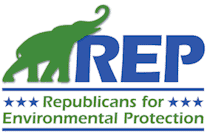Biblio
Our analysis suggests that while shale gas development poses significant risks to the environment, including faulty well construction, blowouts, and above-ground contamination due to leaks and spills of fracturing fluids and waste water, technologies and best practices exist that can help manage these risks.
Best practices are currently being applied by some producers in some locations, but not by all producers in all locations. Enforcing strong regulations is necessary to ensure broader adoption of these practices and to minimize risk to the environment. In addition, if increased shale gas development is to be undertaken responsibly, the cumulative risks of developing thousands of wells must be considered.
The report concludes that faulty well construction, in particular poorly cemented steel casings needed to isolate the gas from shallow formations, as well as above-ground contamination due to leaks and spills of fracturing fluids and waste water, pose more significant risks to the environment.
In addition, continued study and improved communication of the environmental risks associated with both individual wells and large scale shale gas development are essential for society to make well-informed decisions about its energy future.
"Although the technologies, best practices, and regulations that can help minimize these risks exist, they have not yet been universally adopted," says Worldwatch Fellow and co-author Saya Kitasei. "Experiences in Colorado, Wyoming, Pennsylvania, and New York demonstrate that strong public pressure exists for stricter oversight."
Mark Zoback is one of the scientists on the short list for the upcoming EPA study.
The Worldwatch Institute is an independent research organization recognized by opinion leaders around the world for its accessible, fact-based analysis of critical global issues. The Institute's three main program areas include Climate & Energy, Food & Agriculture, and the Green Economy.
See: Flavin, C., and S. Kitasei. The Role of Natural Gas in a Low-Carbon Energy Economy. Briefing paper. Natural Gas and Sustainable Energy Initiative. Washington, D.C.: Worldwatch Institute, 2010. (PDF, 617kb)
Is America witnessing the birth of a new civil war? A polarization of political ideologies has paralyzed the democratic process and poisoned the relationship needed between politics, science, and hermeneutics.
This conservative organization's action page has form letters on a number of issues that Republican voters may send to their representatives to let them know that the party line may not be in their best interests.
Whether or not the debate is about jobs, public radio, oil and gas, or America's military footprint in the world; all Americans will benefit by the preservation of our resources. Conservative Republicans, Liberal Democrats, and everyone in between and on the fringes can work together to provide the regulatory leadership that demonstrates our respect for all life and a basic human right to clean water and air.
The "Big Lie" perpetrated by climate change doubters and insincerely debated by Global Warming Experts, warrants the recall of those representatives whose bullying is tantamount to treason and rends our union vulnerable to the extremist, irresponsible policy that cites Climate Change as a lie, endangering the health and safety of our children, and putting us at the brink of disaster. (Neil Zusman, 2011-03-17).
The Senate letter, "Congress Should Pass a 'Clean' Continuing Resolution" includes:
As a Republican voter, I urge you to support a fair 2011 continuing resolution that does not target environmental and conservation programs for a disproportionate share of budget cuts and is free of the anti-environmental riders that were, unfortunately, included in a resolution that the House passed on February 19.
I understand the need to correct the federal government’s fiscal imbalances, and it is fair to require reductions in environmental and conservation programs. It is not fair, however, to require these programs to shoulder a disproportionate share of the reductions. Nor should the resolution include the shockingly extreme riders that were in the House’s resolution. These riders would weaken bedrock environmental laws, including the Clean Air Act and Clean Water Act, as well as public lands protection and wildlife conservation.
Republicans were not elected to weaken laws that protect Americans’ health and protect our nation’s scenic, historic, and wildlife treasures for future generations.
Congressional Republicans must return to the traditional conservatism that values stewardship, saving for the future, and making frugal and careful use of our country’s natural as well as its fiscal resources.
Please support a continuing resolution that takes a rational approach towards correcting our nation’s fiscal imbalances, and avoids indulging the anti-environmental agendas of political extremists.
See: Smackdown: climate science vs. climate economics.
See: Climate Co-benefits and Child Mortality Wedges.
See: Snubbing Skeptics Threatens to Intensify Climate War, Study Says.
See: Climate Zombies Now Run The House.
See: GOP Budget Amendments Would Destroy Health, Economy, Planet
See: EPA chief faces hostile House GOP
See: Energy & Commerce Committee Investigates Potential Impacts of Hydraulic Fracturing
American Electric Power v. Connecticut, argued earlier this week, spurs debate over the role of the courts in addressing climate change.
The Court heard oral argument in American Electric Power v. Connecticut on Tuesday. The case raises questions about the role of the federal courts in addressing climate change–a subject that has interested academics as well. Professors David Markell and J.B. Ruhl address the issue empirically by reviewing every climate change case brought through December 31, 2009, to determine whether courts are serving as “battlefields” in the “climate fights.”
A forthcoming article in the Yale Law Journal by Benjamin Ewing and Douglas Kysar argues that climate change litigation illustrates how tort law can prod political actors to address social problems. And John Wood’s article in the Environmental Law Reporter runs through the arguments regarding displacement of public nuisance claims in the context of climate change. All three articles contend that climate change litigation raises important questions about the relationship between the judiciary and the political branches of government. We’ll soon learn the Court’s views on these questions as well.
See: SCOTUSblog | American Electric Power Co., Inc. v. Connecticut.
See: Markell, D., and J. B. Ruhl. “An Empirical Survey of Climate Change Litigation in the United States.” Envtl. L. Rep. News & Analysis 40 (2010): 10–644. Print.
See: Ewing, B., and D. A Kysar. “Climate Change, Courts, and the Common Law.” Print.
See: Wood, John. "Easier Said than Done: Displacing Public Nuisance when States Sue for Climate Change". (February 17, 2011). Environmental Law Reporter, Forthcoming. Available at SSRN: http://ssrn.com/abstract=1763359









